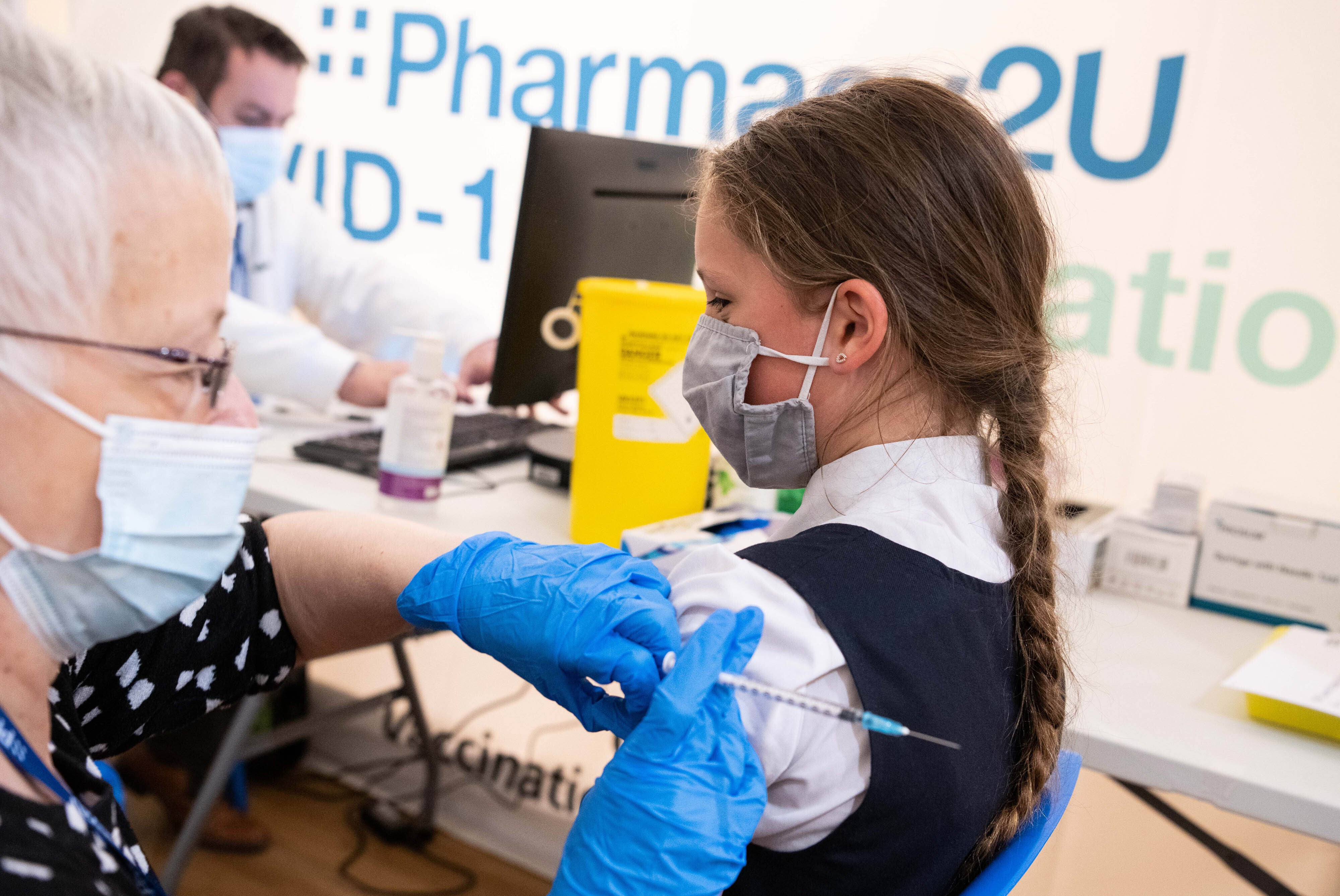Nearly all secondary pupils have Covid antibodies – survey
Study finds more primary parents are wary of vaccinating their child against Covid than in 2021.

Your support helps us to tell the story
From reproductive rights to climate change to Big Tech, The Independent is on the ground when the story is developing. Whether it's investigating the financials of Elon Musk's pro-Trump PAC or producing our latest documentary, 'The A Word', which shines a light on the American women fighting for reproductive rights, we know how important it is to parse out the facts from the messaging.
At such a critical moment in US history, we need reporters on the ground. Your donation allows us to keep sending journalists to speak to both sides of the story.
The Independent is trusted by Americans across the entire political spectrum. And unlike many other quality news outlets, we choose not to lock Americans out of our reporting and analysis with paywalls. We believe quality journalism should be available to everyone, paid for by those who can afford it.
Your support makes all the difference.Nearly all secondary school-age children have Covid-19 antibodies, according to data from the School Infection Survey.
The data released on Monday also showed that the proportion of primary school parents who would be “unlikely” to vaccinate their child has risen.
The survey found an estimated 99% of secondary pupils and 82% of primary pupils tested positive for Covid antibodies between March 3 and 22 this year.
The testing, in its final round, found that there was “significantly higher” antibody levels in both primary and secondary pupils than during the previous round of tests in February, when 97% and 62% of secondary and primary pupils respectively tested positive for the antibodies.
The study also found that 78% of children aged between four and seven tested positive for antibodies.
Dr Patrick Nguipdop-Djomo, co-chief investigator of the study, said: “There has been a small increase in secondary school students testing positive for Covid-19 antibodies, around 99% compared to 97% in the second round of testing in January and February 2022.
“This rise in antibody prevalence was larger in primary school students, increasing from 62% in the last round of testing to 82% in this round.
“It is not surprising that we are seeing this increase in antibody prevalence in primary schools, given it is consistent with the high rates of children infected with the Omicron variant during the spring term.”
In total, 10,109 pupils from 116 primary schools and 52 secondary schools took part in the third round of antibody testing as part of the SIS project, which is jointly led by the London School of Hygiene and Tropical Medicine (LSHTM), Office for National Statistics (ONS) and UK Health Security Agency (UKHSA).
The test was based on oral fluid collection, which is more suitable for children to carry out self-tests than blood tests, although oral tests are also less sensitive than blood tests, meaning that results cannot be used to measure prior Covid infection over a long time frame.
Researchers also explored parents’ feelings about vaccination, finding that fewer than one in 10 (6%) of primary pupils had received at least one vaccine against Covid during March 2022.
The proportion of primary school pupils who were not vaccinated and whose parents said they were “unlikely” to agree to their child being vaccinated significantly increased from 24% in the first round of tests in December 2021 to 36% in March 2022.
The proportion of secondary pupils’ parents who would be “unlikely” to vaccinate their child remained largely unchanged.
Dr Nguipdop-Djomo said: “The vaccine sentiment data suggests that the majority of secondary school students who said they were likely to get the vaccine in December did indeed get the vaccine.
“Parents of primary school students who said they were “unlikely” to vaccinate their child has increased by 12%, with many saying they do not think their child need the vaccine or they are waiting to see how the vaccine work.
“This underlines the importance of a better understanding of the impact of Covid-19 in younger children to help parents in their decisions and provide appropriate public health messaging including both the safety and benefits of vaccination.”
Fiona Dawe, deputy director, Wider Surveillance Studies at the ONS, said: “Today’s data shows a significant increase, from January to March this year, in the number of pupils with Covid-19 antibodies, with nearly all secondary school pupils and most primary school pupils likely to test positive for antibodies.
“Though we cannot say for certain, it is likely these increases have been driven by the more transmissible Omicron variants becoming dominant across the UK, as well as the continuing vaccine programme for secondary school-aged pupils.”